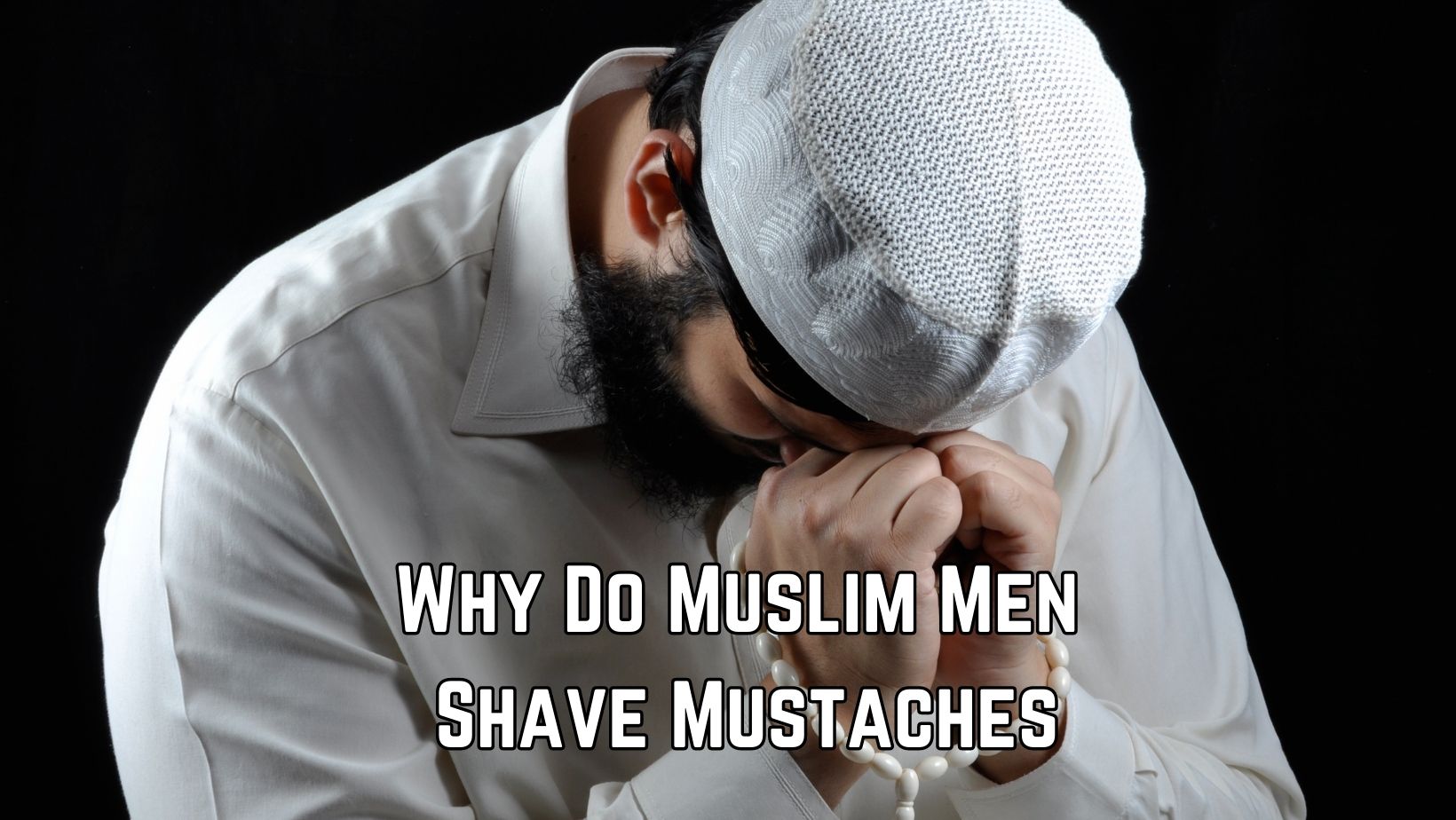
The beard is considered a sign of masculinity and dignity in Islam, and it is believed that the Prophet Muhammad instructed his followers to grow their beards and trim their mustaches as a way to differentiate themselves from non-Muslims and to uphold Islamic traditions. It is also believed that the beard is a natural part of a man’s body and should be left to grow as it pleases, without any alteration or shaping.
On the other hand, shaving the mustache is considered a cultural practice in Islam that is rooted in the Prophet Muhammad’s example. It is said that the Prophet Muhammad trimmed his mustache to distinguish himself from the polytheists of Mecca, who used to shave their mustaches and grow their beards long. Therefore, it has become a tradition in Islam to shave the mustache and keep the beard.
Hadith On Mustache and their Significance
There are several hadiths (sayings of the Prophet Muhammad) that discuss the importance of trimming the mustache. Here are a few examples:
- Narrated Ibn Umar: The Prophet (peace be upon him) said, “Trim the mustache and let the beard grow. Thus, you will be different from the People of the Book (i.e., Jews and Christians).” [Sahih Al-Bukhari]
- Narrated Abu Hurairah: The Prophet (peace be upon him) said, “Five things are part of the fitrah (natural disposition): circumcision, removing the pubic hair, trimming the mustache, cutting the nails, and plucking the armpit hair.” [Sahih Al-Bukhari and Sahih Muslim]
- Narrated Abdullah ibn Umar: The Prophet (peace be upon him) said, “He who does not remove any of his mustache is not one of us.” [Sunan Abu Dawud]
These hadiths emphasize the importance of maintaining a neat and tidy appearance by trimming the mustache. It is considered part of the natural disposition (fitrah) and is also seen as a way to differentiate oneself from non-Muslims.
Why do Turkish Muslim men grow mustaches?
Moreover, in Ottoman Turkish culture, wearing a mustache was considered a symbol of power and authority. It was a common practice among Ottoman officials and military personnel to grow a mustache, and it was even part of their uniform. This tradition has continued to some extent in modern Turkey, where some men still grow mustaches as a sign of pride in their heritage and culture.
However, it is important to note that not all Turkish Muslim men grow mustaches and the decision to do so is a personal choice. Some may choose to grow a beard without a mustache or to have a clean-shaven face. Ultimately, the decision to grow a mustache or not depends on individual preference and cultural and religious background.
Is Mustache Haram In Islam?
Having a mustache is not haram (forbidden) in Islam, but it is recommended for men to trim or shave their mustache in accordance with the sunnah (the teachings and examples of the Prophet Muhammad). However, shaving the mustache completely is generally considered makrooh (disliked) in Islam, as it goes against the sunnah of the Prophet.
- Is Facial Hair Haram In Islam?
Facial hair, including the beard and mustache, is not haram in Islam. In fact, growing a beard is considered a sunnah of the Prophet Muhammad, and it is highly encouraged for Muslim men to grow and maintain a beard.
- Is It Haram Or Makrooh To Drink Water That Touch Moustache?
Drinking water that touches the mustache is not haram in Islam. However, it is recommended to wipe the mustache and clean it before drinking water, in order to maintain cleanliness and avoid any impurities.
- Is It Haram To Shave Your Mustache For A Girl?
It is not haram to shave your mustache for a girl. However, it is important to make sure that the decision to shave is based on personal choice and not influenced by societal pressure or cultural norms. It is also important to consider the Islamic teachings and examples when making such decisions.
- Q: Why do some Muslim men grow beards but no mustaches?
A: The practice of growing a beard without a mustache, known as “beard trimming,” is a common cultural and religious practice among some Muslim communities. This practice is based on the teachings of Prophet Muhammad, who is believed to have trimmed his beard in this manner. Some Muslims also believe that growing a full beard with no mustache is a way to differentiate themselves from non-Muslims.
- Q: Is it mandatory for Muslim men to grow a beard and not have a mustache?
A: No, it is not mandatory for Muslim men to grow a beard or to shave their mustache. While some Muslims believe that growing a beard without a mustache is a religious obligation, this view is not universally held. Ultimately, the decision to grow a beard or shave one’s mustache is a personal choice based on individual beliefs and cultural traditions.
- Q: What is the significance of the beard in Islam?
A: The beard is considered a symbol of masculinity, dignity, and religious piety in Islam. It is believed that Prophet Muhammad grew a beard and encouraged his followers to do the same. Many Muslims view the beard as a way to emulate the Prophet and as a way to distinguish themselves from non-Muslims.
- Q: Are there any health benefits to growing a beard and not having a mustache?
A: While there is no scientific evidence to suggest that growing a beard without a mustache has any specific health benefits, some studies have suggested that beards can protect the skin from UV radiation and help prevent skin infections. Additionally, some men may find that growing a beard can help prevent ingrown hairs and other skin irritations caused by shaving.
- Q: Can Muslim women grow a beard?
A: While some women may naturally grow facial hair, it is not common for Muslim women to intentionally grow a beard. In Islam, there is no religious requirement for women to grow a beard, and many cultural traditions discourage women from growing facial hair. Ultimately, the decision to grow a beard is a personal choice and should be based on individual beliefs and cultural traditions.
Summary
It’s important to note that not all Muslim men choose to grow a beard or shave their mustache, and this practice varies widely among different Muslim cultures and communities. Some may grow a full beard while others may keep a shorter beard or only grow a mustache. Ultimately, the decision to grow a beard and shave a mustache is a personal choice and varies from person to person.

Hi Everyone, BeYoungAholic’s aim is to help women who have lost their self-confidence because of the way they look. We will provide you tips and bits of advice on how to take care of yourself and maintain your youthful look. So, Enjoy the blog!







